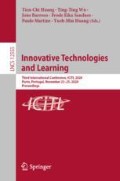Abstract
The purpose of this research was to synthesize theoretical framework of constructivist web-based learning environment for problem solving. The target groups used in study were 1) 3 contents experts for evaluation of the contents 2) 3 experts for evaluation of the instructional designers 3) experts for evaluation of the instructional media expert. 4) 3 experts for evaluation of the collecting tools and 5) 20 students of regional special education center 9, Khon Kaen in a course of intellectual disability unit in the 2st semester, 2019. The instruments used were 1) survey form for learning contextual 2) survey form for students characteristic and 3) The recording form for synthesis of the theoretical framework of constructivist web-based learning environment model to problem solving. Summarization, interpretation and analytical description were used to analyze the data. The result revealed that: Theoretical framework of constructivist web-based learning environment comprise of 5 components as following 1) Psychological base 2) Pedagogy base 3) Problems Solving base 4) Media theory and Technology base 5) Contextual base.
Access this chapter
Tax calculation will be finalised at checkout
Purchases are for personal use only
References
Mai, N., Tse-Kian, N.: Engaging students in multimedia-mediated constructivist learning students’ perception. Educ. Technol. Soc. 12(2), 254–266 (2009)
Fosnot, C.T.: Constructivism: a psychological theory of learning. In: Fosnot, C.T. (ed.) Constructivism: Theory, Perspectives, and Practice, pp. 8–33. Teachers College Press, New York (1996)
Fer, S., Akyol, S.: Effects of social constructivist learning environment design on 5th grade learners’ learning. Procedia - Soc. Behav. Sci. 9, 948–953 (2010)
Cobb, P.: Where is the mind. constructivist and social cultural perspectives on mathematical development. Educ. Res. 23(7), 13–20 (1994)
Wang, Y., et al.: Perspectives on cognitive computing and applications. Int. J. Softw. Sci. Comput. Intell. 2(4), 32–44 (2010)
Yuan, S.: The teacher’s role in problem-solving: a study of elementary mathematics programs from teachers’ perspectives. A Research Paper Submitted in Conformity with the Requirements For the degree of Master of Teaching Department of Curriculum, Teaching and Learning Ontario Institute for Studies in Education of the University of Toronto (2016)
Richey, R.C., Klein, J.D.: Design and Development Research Methods. Strategies and Issues. Lawrence Erlbaum Associates, New Jersey (2007)
Huy, P.P., Bing, H.N., Alexander, S.Y.: School of education institute for positive psychology and education. Achiev. Optim. Best Instr. Effic. Use Cogn. Load Theor. Math. Probl. Solving 29(3), 667–692 (2016)
Krulik, S., Rudnick, J.A.: Problem Solving. Allyn and Bacon, Boston (1987)
Piaget, J.: Judgment and Reasoning in the Child. Translated by Marjorie Warden. Roultedge & Kegan Paul, London (1989)
Vygotsky, L.: Interaction between learning and development. In: Gauvain, M., Cole, M. (eds.) Readings on the Development of Children. Scientific American Books, New York (1978)
Klausmeier, H.J.: Educational Phychology, S thed edn. Harper & Row, New York (1985)
Wilson, B.G., Cole, P.: Cognitive dissonance as an instructional variable. Ohio Media Spectr. 43(4), 11–21 (1991)
Guilford, J.P.: The Nature of Human Intelligence. McGraw-Hill BookCompany, New York (1967)
Hannafin, M.J.: Video assessment of classroom teaching practices: lessons learned, problems & issues. Educ. Technol. 50(1), 32–37 (1999)
Mayer, R.E.: The origin and decline of two rural resistance ideologies. In: Mayer, P. (ed.) Black Villagers in an Industrial Society: Anthropological Perspective on Labor Migration in South Africa. Oxford University Press, Cape Town (1999)
Mayer, R.E.: Designing Instruction for Constructivist Learning. Instructional Design Theories and Models: A New Paradigm of Instructional Theory. Lawrence Erlbaum Associates, Newjersy (1996)
Brown, C., Duguid, P.: Situated cognition and the culture of learning. Educ. Res. 18(1), 32–42 (1989)
Donald, D.M.: Augmented reality on mobile devices to improve the academic achievement and independence of students with disabilities. Doctoral Dissertations, University of Tennessee, Knoxville (2014)
Solvie, P., Kloek, M.: Using technology tools to engage students with multiple learning styles in a constructivist learning environment. Contemp. Issues Technol. Teach. Educ. 7(2), 7–27 (2014)
Dikaya, L.A., Ermakov, P.N., Dikiy, I.S.: EEG correlates of professional creative problem solving with insight. Int. J. Psychophysiol. 3(85), 361–430 (2012)
Samat, C., Chaijaroen, S.: Design and development of learning environment to enhance creative thinking and innovation skills for teacher training in the 21st century. In: Proceedings of the 23rd International Conference on Computers in Education, ICCE 2015, pp. 667–672 (2015)
Author information
Authors and Affiliations
Corresponding author
Editor information
Editors and Affiliations
Rights and permissions
Copyright information
© 2020 Springer Nature Switzerland AG
About this paper
Cite this paper
Pimsook, P., Chaijaroen, S. (2020). Theoretical and Designing Framework of Constructivist Web-Based Learning Environment Model to Problem Solving. In: Huang, TC., Wu, TT., Barroso, J., Sandnes, F.E., Martins, P., Huang, YM. (eds) Innovative Technologies and Learning. ICITL 2020. Lecture Notes in Computer Science(), vol 12555. Springer, Cham. https://doi.org/10.1007/978-3-030-63885-6_53
Download citation
DOI: https://doi.org/10.1007/978-3-030-63885-6_53
Published:
Publisher Name: Springer, Cham
Print ISBN: 978-3-030-63884-9
Online ISBN: 978-3-030-63885-6
eBook Packages: Computer ScienceComputer Science (R0)

